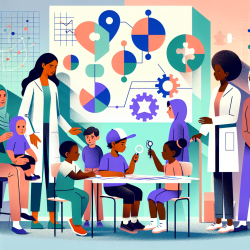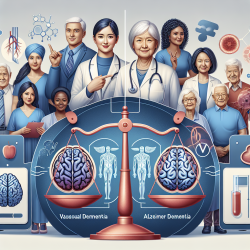The COVID-19 pandemic has posed unprecedented challenges for healthcare professionals worldwide. Among these challenges is the experience of moral distress, a phenomenon that has gained attention due to its impact on clinicians' well-being and performance. This blog post explores the concept of moral distress as highlighted in the research article "Moral distress among clinicians working in US safety net practices during the COVID-19 pandemic: a mixed methods study" and provides practical insights for practitioners to manage and mitigate its effects.
What is Moral Distress?
Moral distress occurs when healthcare providers are unable to act according to their ethical beliefs due to external constraints. This can lead to feelings of frustration, guilt, and helplessness. The study conducted during the pandemic revealed that a significant number of clinicians experienced moral distress when they could not provide optimal care or witnessed inequities and injustices affecting their patients.
The Impact of Moral Distress During the Pandemic
The study surveyed 2073 clinicians across various disciplines working in safety net practices. It found that:
- 28.4% reported no moral distress related to work during the pandemic.
- 44.8% experienced 'mild' or 'uncomfortable' levels of moral distress.
- 26.8% characterized their moral distress as 'distressing', 'intense', or 'worst possible'.
The most common sources of moral distress included:
- Lack of resources: Clinicians often faced situations where they could not provide necessary care due to resource limitations.
- Risk of infection: Both patients and staff were at risk of infection, which added to the stress and ethical dilemmas faced by healthcare workers.
- Inequities and injustices: Witnessing disparities in healthcare access and outcomes among marginalized communities was particularly distressing.
Coping with Moral Distress
Moral distress can have significant consequences if not addressed, including burnout, job dissatisfaction, and turnover. Here are some strategies practitioners can adopt to manage moral distress effectively:
- Create a Supportive Environment: Encourage open communication within your team about ethical challenges and provide a safe space for discussing these issues.
- Engage in Reflective Practice: Regularly reflect on your experiences and feelings related to moral distress. This can help you process emotions and develop coping mechanisms.
- Pursue Further Education: Attend workshops or webinars focused on ethics in healthcare to enhance your understanding and skills in managing moral dilemmas.
- Acknowledge Limitations: Recognize that some situations are beyond your control and focus on what you can change or influence positively.
The Role of Organizations
The study suggests that healthcare organizations play a crucial role in mitigating moral distress by:
- Cultivating Ethical Leadership: Leaders should model ethical behavior and support staff in navigating complex situations.
- Providing Resources: Ensure adequate staffing, protective equipment, and mental health support for clinicians.
- Promoting Fair Policies: Develop policies that address inequities and support equitable care delivery.
The Path Forward
Moral distress is an inevitable part of healthcare practice, especially during crises like the COVID-19 pandemic. However, by understanding its causes and implementing supportive strategies, practitioners can improve their resilience and continue providing high-quality care. As we move forward, it is essential for both individuals and organizations to prioritize ethical considerations and support systems that address moral distress effectively.
If you're interested in exploring this topic further, consider reading the original research paper: Moral distress among clinicians working in US safety net practices during the COVID-19 pandemic: a mixed methods study.










